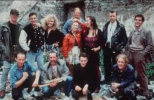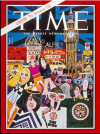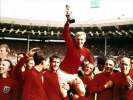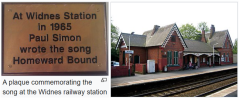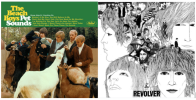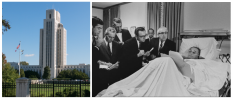Blue Moon Rock Evolution – 1966
I am shielded in my armor
Hiding in my room, safe within my womb
I touch no one and no one touches me
While the lyrics to a popular song released in 1966 may have held true for yours truly for most of the year,
*spoiler alert*, all good things must come to an end. But more on that later…
1966 musically was highlighted by a great mix of soul, folk, psychedelic, pop, rock, and two behemoth bands, each inspired by and trying to outdo the other in their next release, upping the ante for all groups that would dare or attempt to follow them. I’m reminded of the future 1989 song title that Don Henley used when thinking of this year – “The End of the Innocence”. While many would argue that period was already past, given what was still to come the rest of the decade, I’ll try to hold onto
order here as long as I can, as the wild ride was just beginning this year.
Here are just a few of the main events in popular music that year, in
order, of course:
- 14 January – Young English singer David Jones changes his last name to Bowie to avoid being confused with Davy Jones of the Monkees. Releases would come that year, but overall success would come later.
- 6 February – The Animals appear a fifth time on The Ed Sullivan Show to perform their iconic Vietnam anthem hit "We Gotta Get Out of this Place" (as heard on our 1965 playlist)
- 4 March – The Beatles' John Lennon is quoted in the London Evening Standard newspaper as saying that "We're more popular than Jesus now." In August, following publication of this remark in Datebook, there are Beatles protests and record burnings in the Southern US's Bible Belt.
- 15 March – The 8th Annual Grammy Awards are held in New York, hosted by Jerry Lewis. Roger Miller wins the most awards with five. Frank Sinatra's September of My Years wins Album of the Year, Herb Alpert & the Tijuana Brass' version of "A Taste of Honey" wins Record of the Year, and Tony Bennett's version of "The Shadow of Your Smile" wins Song of the Year. Tom Jones wins Best New Artist, which is backed up in future years to be not unusual.
- 23 April – For the first time since its 18 January 1964, issue, the Billboard Hot 100 chart fails to have an artist from the UK with a Top 10 single, ending a streak of 117 consecutive weeks. I mention this for just the sheer impressive 2.25-year streak of what came prior.
- 1 May – The Beatles, The Rolling Stones and The Who perform at the NME's poll winners' show at the Empire Pool (Wembley) in London. This will be The Beatles' last conventional live concert in Britain. The show is videotaped for later broadcast, but The Beatles' and The Stones' segments are omitted because of union conflicts.
- 17 May – Bob Dylan and the Hawks (later The Band) perform at the Free Trade Hall, Manchester, England. Dylan is booed by the audience because of his decision to tour with an electric band, the boos culminating in the famous "Judas" shout. Later in June, Dylan's album Blonde on Blonde is released in the US. This was recently reviewed in the Album thread, so I’m not going to include any songs from it here. I finally will note that later in July, Dylan is injured in a motorcycle accident near his home in Woodstock, New York and is not seen in public for over a year, so 1966 was a mixed bag for this legendary artist.
- 30 May – Them, fronted by Van Morrison, begin a three-week stint as the headliner act at the Whisky a Go Go in Hollywood. On the last night 18 June, they are joined on stage by that week's opening act The Doors. Van and Jim Morrison sing "Gloria" together. It wouldn’t be until the first day of 1967 that the Doors break on through with their first album release.
- 29 August - The Beatles perform their last official concert at Candlestick Park in San Francisco, CA. The last song they play is Little Richard's "Long Tall Sally".
- 24 September – Jimi Hendrix arrives in London to record with producer/manager Chas Chandler. His first single of his version of “Hey Joe” would be released later in December.
- 8 October – WOR-FM in New York City becomes the first FM rock music station, under the leadership of DJ Murray The K.
- 30 November – The Yardbirds officially announce that Jeff Beck has left the band, leaving Jimmy Page as sole guitarist in the group, within which Page would plant the seeds of Led Zeppelin.
In other thematic events, 1966 was highlighted here:
Vietnam War – In January, President Lyndon Johnson states that the U.S. should stay in South Vietnam until Communist aggression there is ended. In support of this, about 8,000 U.S. soldiers land in South Vietnam later that month for U.S. troops to total 190,000. By March, demonstrations are held across the U.S. against the Vietnam War. In April, U.S. troops in Vietnam total 250,000. In May in New York City, Dr. Martin Luther King Jr. makes his first public speech on the Vietnam War. In June, U.S. planes begin bombing Hanoi and Haiphong. In August, The U.S. House Un-American Activities Committee starts investigating Americans who have aided the Viet Cong, with the intent to make these activities illegal. Anti-war demonstrators disrupt the meeting and 50 are arrested.
Civil Rights in the US – In January, Sammy Younge Jr. is shot in Tuskegee, Alabama, the first African American university student to be murdered due to his actions in support of the civil rights movement. The home of civil rights activist Vernon Dahmer in Hattiesburg, Mississippi, is firebombed that same month. Dahmer's family escapes, but he dies the next day from severe burns. White Knights of the Ku Klux Klan Imperial Wizard Samuel Bowers will be unsuccessfully tried for this murder on four occasions before being convicted in 1998. In March, the Texas Western Miners with five black starters defeat the Kentucky Wildcats, ushering in desegregation in athletic recruiting. Civil rights activist James Meredith is shot (and survives) in June while trying to march across Mississippi. The Hough Riots break out in Cleveland, Ohio, the city's first race riot in July. Future riots would break out in other cities in the coming months and years. Martin Luther King Jr. leads a civil rights march in Chicago, during which he is struck by a rock thrown from an angry white mob in August. In October, Bobby Seale and Huey P. Newton create the Black Panther Party. Former Massachusetts Attorney General Edward Brooke becomes the first African American elected to the U.S. Senate since Reconstruction.
UK news – The general election was held on Thursday 31 March. The result was a landslide victory for the Labour Party led by Prime Minister Harold Wilson. This was the last British general election in which the voting age was 21.
In April, Time Magazine’s cover story is "London: The Swinging City" as that theme from 1964 had made this city’s world headline by then.
View attachment 147879
Other Politics – In May, Fidel Castro declares martial law in Cuba because of a possible US attack. In November, screen actor Ronald Reagan, a Republican, is elected Governor of California.
Popular culture – Bobbi Gibb becomes the first woman to run the Boston Marathon in April. Boat ride "It’s a Small World" opens at Disneyland in May. Ralph Baer, an inventor with Sanders Associates, writes a four-page document that lays out the basic principles for creating a video game to be played on a television while he’s waiting at a bus stop: the beginning of a multibillion-dollar industry. Walt Disney records his final filmed appearance in October, detailing his plans for EPCOT, a utopian planned city to be built (at WDW) in Florida. Disney dies later in December while producing
The Jungle Book, the last animated feature under his personal supervision.
Television –
The Flintstones and
The Dick Van Dyke Show sitcoms both air its final series episodes in the Spring. In September, classic science fiction series Star Trek premieres on NBC with its first episode, titled "The Man Trap".
The Monkees television series also premieres on NBC. In October
, It's the Great Pumpkin, Charlie Brown! premieres on the CBS network.
How the Grinch Stole Christmas, narrated by Boris Karloff, is shown for the first time on CBS on 18 December. It becomes a Christmas tradition.
Movies –
A Man for All Seasons was released in the US in December. It was adapted from the play and depicts the final years of Sir Thomas More, the 16th-century Lord Chancellor of England who refused both to sign a letter asking Pope Clement VII to annul Henry VIII of England's marriage to Catherine of Aragon, and to take an Oath of Supremacy declaring Henry Supreme Head of the Church of England.
Paul Scofield, who had played More in the West End stage premiere, also took the role in the film. It won the Academy Award for Best Picture at the 39th Academy Awards the following year and was a box office success. The cast and crew of the film won another five Oscars, including Best Director for Fred Zinnemann and Best Actor for Scofield. Elizabeth Taylor would take home the Best Actress award for her performance in
Who's Afraid of Virginia Woolf?, the other film to rival AMFAS.
Did I miss anything? Wait… I do think something “came home” that year…
Football - On 11 July, the eighth FIFA World Cup began in England and was opened by Queen Elizabeth II in that opening ceremony. In the final on 30 July, England defeated West Germany 4–2 to win their first ever World Cup title. The final was level at 2–2 after 90 minutes and went to extra time, when Geoff Hurst scored two goals to complete his hat-trick, the first to be scored in a men's World Cup final. England were the fifth nation to win the event, and the third host nation to win after Uruguay in 1930 and Italy in 1934. Two-time reigning champions Brazil failed to get past the group stages as they were defeated by Hungary and Portugal. It was the first time that defending champions were eliminated in the group stages after Italy in 1950. This would not occur again until 36 years later.
View attachment 147882
England captain Bobby Moore holds aloft the World Cup trophy after England beat West Germany 4-2
Manchester City won the Second Division in the Spring and was promoted back to the First Division (FPL equivalent) after three years at that level.
The 1966 FA Cup was the 85th staging of the world's oldest football cup competition. Everton won the Cup for the third time, beating Sheffield Wednesday 3–2 in the final at Wembley.
For the initial playlist songs of this year, I’m going to go in chronological order of release as I like the song flow and it is pertinent to a couple songs and their respective ground breaking albums.
Which album, which release, and most importantly, which ‘station’?
I'm sittin' in the railway station
Got a ticket for my destination…
"Homeward Bound" is a song by the American music duo
Simon & Garfunkel, released as a single on 19 January by Columbia Records. It was written by Paul Simon and produced by Bob Johnston. Simon wrote the song during his time in England, although there are multiple locations where this track was supposedly composed.
Simon was staying with his friend Geoff Speed in Liverpool in September 1965, who claimed he heard this song being written there. However, other locations for the writing of the song have been suggested. When Speed dropped Simon off at Widnes railway station; he said it was likely that Simon wrote one verse in Liverpool and the chorus in Wigan and finished the song at the station. Later in 2016, Simon said he wrote the song in a railway station near Liverpool, and said it might have been Warrington, southwest of Manchester. Either way, it appears that Widnes Station was first with the plaque, so for now they appear to be the most vocal and committed in claiming it.
View attachment 147883
"Homeward Bound" was recorded during the
Sounds of Silence sessions and included on the UK-only version of that album released that same month in January 1966. However, this track wouldn’t appear on a US studio album until much later in October of 1966 with the release of
Parsley, Sage, Rosemary and Thyme.
This song was their second single and the follow-up to their breakthrough hit "The Sound of Silence". "Homeward Bound" performed very well domestically, peaking at number five on the Billboard Hot 100, remaining on the charts for 12 weeks. It reached number two in Canada and was a top five hit in the Netherlands. Paul Simon just over a week ago opened the 50th Anniversary of Saturday Night Live by performing this song with Sabrina Carpenter.
A Psychedelic February
Another Brill Building masterpiece composed by Barry Mann and Cynthia Weil was originally written for the Animals after their prior year success with “We Gotta Get Out of This Place”, but lead singer Eric Burdon ended up turning it down.
Instead, American band Paul Revere & the Raiders recorded and released it as a single. It was a number one hit in Canada and reached number four in the US. This track was included on the band's fifth album, Midnight Ride, released soon in May 1966.
This was considered one of the earliest anti-drug songs, it was composed and released during an era in which pro-hippie, pro-experimentation, and other counterculture themes were gaining popularity on US FM radio stations. The song's message was consequently perceived as outdated by the emerging youth counterculture, as popular artists ranging from the Beatles to Jefferson Airplane had written songs whose themes sharply contrasted that of this. Mann and Weil wrote the song as a warning to a friend about the dangers of drug use. In the song, a narrator pleads with a girl that drug use causes addiction and that soft drugs can lead to the use of hard drugs. While the lyrics never explicitly mention any of those things; ultimately the lyrics conclude that her real problem is psychological, and that there is "another way" to face the trials of life. Also noteworthy is the lyrics have a reference to “magic carpet ride”, which as a song title, wouldn’t be recorded for another couple years.
This track was ranked number 400 on Rolling Stone's list of the 500 Greatest Songs of All Time.
“Kicks” - Paul Revere & the Raiders
Monday in March
"Oh Monday mornin'
you gave me no warnin'
of what was to be
It’s hard to believe, but this is the only song that the Mamas and The Papas that ever reached #1. John Phillips said that he wrote this song in about 20 minutes. In the lyrics, the singer dislikes Mondays because the person he loved left him on that day.
The group won a Grammy Award for this song the following year in the
Best Contemporary (R&R) Group Performance, Vocal Or Instrumental category. From a legacy point of view, this song was inducted into the Grammy Hall of Fame in 2008 and would be covered well over 20 times by various artists.
"Monday, Monday" - The Mamas and The Papas
Southern Soul and Jazz
Released by Atlantic Records in April 1966, this song reached #1 on both the Billboard Hot 100 and R&B singles charts, becoming the first #1 hit recorded at Norala Sound Studio in Muscle Shoals, Alabama. The song written by Calvin Lewis and Andrew Wright of the Esquires, and first recorded by Percy Sledge, the singer fronting the band.
The single was also a top ten hit in the UK reaching number four on its initial release and ultimately peaking at number two in 1987 on the UK Singles Chart after it was featured in a Levi's Jeans commercial.
This version that Percy Sledge recorded is listed 53rd in Rolling Stone's 500 Greatest Songs of All Time. Also in 1987, it was reissued in the US to promote the soundtrack album for Oliver Stone's film
Platoon (there’s that soundtrack reference again – it’s almost like I knew this was coming!).
In 1999, the 1966 recording by Percy Sledge was inducted into the Grammy Hall of Fame. Like the previous song, this track has been covered by many artists over the years since its original release. But in my mind, nothing beats this original version from Percy.
“When a Man Loves a Woman” – Percy Sledge
This next track is a soul jazz standard written by the American singer and songwriter Bobby Hebb in 1963. It is one of the most performed and recorded popular songs, with hundreds of versions released and its chord progression influencing later songs. BMI rates this song No. 25 in its "Top 100 songs of the century". I distinctly remember hearing and loving this song as a kid more than a few years later, but I’ve always had a special fondness of how this song made me feel.
Hebb wrote the song after his older brother, Harold, was stabbed to death outside a Nashville nightclub. Hebb was devastated by the event, and he merely wrote the song as an expression of a preference for a "sunny" over a "lousy" disposition following the murder of his brother.
The melody Hebb used in this song allowed it to cross over into both R&B where it was #3 and Pop where it was #2 after being released in June. The optimistic lyrics came from the artist's desire to express that one should always "look at the bright side".
"Sunny" - Bobby Hebb
Hotter than July
And babe, don't you know it's a pity
The days can't be like the nights
In the summer, in the city
In the summer…in the city
This track was released on the 4th of July that year. It’s a song by the American folk-rock band the Lovin' Spoonful. Written by John Sebastian, Mark Sebastian and Steve Boone, the song was released as a non-album single and was included on the album
Hums of the Lovin' Spoonful later that year. The single was the band’s fifth to break the top ten in the US, and the only one by the group to reach number one. This was a departure from the band's lighter sound as the recording features a harder rock style. The lyrics differ from most songs about the summer by lamenting the heat, contrasting the unpleasant warmth and noise of the daytime with the relief offered by the cool night, which allows for the nightlife to begin. This song was also significant in that the recording was an early instance of added sound effects, made up of car horns and a pneumatic drill to mimic city noises.
The single's release corresponded with a record heat wave in New York City– peaking in June and July at 102 °F (39 °C) and 90 °F (32 °C) in August – and came shortly after a similar heat wave experienced by Great Britian in the end of June. An advertisement promoting the single was published in the July 2 issue of Billboard magazine, promising it would "capture the feel ... of Summer in the City".
"Summer In The City" - The Lovin' Spoonful
Upping the Ante, One Album at a Time…
It’s been well documented how The Beatles’ 1965 album
Rubber Soul had inspired Brian Wilson of The Beach Boys, who was already mostly confining himself to the studio and forgoing touring with the band since a year prior in 1965. Wilson found that
Rubber Soul subverted most albums of its time by having a wholly consistent thread of music. Inspired by this December 1965 release, Wilson rushed to his wife and proclaimed, "Marilyn, I'm gonna make the greatest album! The greatest rock album ever made!"
What Wilson set about doing was putting together “the most progressive pop album ever" in
Pet Sounds which was recognized for its ambitious production, sophisticated music, and emotional lyrics. Wilson set out like The Beatles’ to create an album without filler. An early concept album, it consists mainly of introspective and semi-autobiographical songs like "You Still Believe in Me", about a lover's unwavering loyalty; "I Know There's an Answer", a critique of LSD users; and "I Just Wasn't Made for These Times", about social alienation. This was a close to a Brian Wilson solo album as one could get without the actual label. Although the album was initially met by a luke-warm reception due to a lack of “hits” by fans, it is now considered to be among the greatest and most influential albums in music history.
It included elements of pop, jazz, exotica, classical, and the avant-garde, Wilson's Wall of Sound–based orchestrations mixed conventional rock set-ups with elaborate layers of vocal harmonies, found sounds, and instruments rarely if ever associated with rock, such as bicycle bells, French horn, flutes, Electro-Theremin, string sections, and soda cans. It marked the most complex instrumental and vocal parts of any Beach Boys album, and the first in which studio musicians (such as the Wrecking Crew) replaced the band on most of the instrumental tracks. The album could not be reproduced live and was the first time that any group had departed from their usual small-ensemble pop/rock band format for a whole LP.
However,
Pet Sounds was not completely devoid of hits, as the song to lead-off side two of the album became a single in July after the album was released in May. Written by Brian Wilson and Tony Asher, it is a baroque-style love song distinguished for its harmonic innovation and complexity, unusual instrumentation, and subversion of typical popular music conventions, both lyrically and musically. It is often praised as one of the greatest songs of all time and as the Beach Boys' finest record. Brian Wilson’s youngest brother and band guitarist Carl sang lead vocals on this track, a performance that became regarded as his best ever. Brian and Bruce Johnston provided additional harmonies, and the song ends with a series of repeating vocal rounds, another device that was uncommon for popular music of the era.
"God Only Knows" - The Beach Boys
… and I’ll Raise You Another
The Beatles of course were not idly sitting by this year, even though they had 2 blockbuster albums the year prior as already has been heard and noted from the 1965 playlist. 3 within a 12-month period with the latter 2 being influential classics is tough to match, much less beat.
The Beatles were very active in seeing lots of concerts in the Swinging City of London in 1966 by various popular artists as heard on these playlists and even attended a private listening party of
Pet Sounds in mid-May.
When
Revolver was released in August, it raised the bar yet again on what an album could be and included so many influential sounds. That release expanded the boundaries of pop music, revolutionized standard practices in studio recording, advanced principles espoused by the 1960s counterculture, and inspired the development of psychedelic rock, electronica, progressive rock and world music. The album cover, designed by Klaus Voormann, combined Aubrey Beardsley-inspired line drawing with photo collage and won the 1967 Grammy Award for Best Album Cover, Graphic Arts.
Many have regarded it to be among, if not, their best, and IMO there isn’t a bad song on the album. George’s song “Taxman” opens the album, and Ringo’s vocal led “Yellow Submarine” was another hit. I debated the song to use for the playlist for a long time here, but in the end, it was the closer over “Eleanor Rigby”, even though the latter was one of my favourites of theirs. Unfortunately on that track, it is mostly Paul, the violins, the violas, and the cello without the band playing their instruments. Paul noted that “God Only Knows” inspired him to write “Here, There And Everywhere” for the album.
I’d be remiss if I also didn’t mention that
@GoatersLeftShin already nominated this album in the Album Review Thread and his great background context on listening to this as linked here is worth another (re)visit for those who want a great description and recollection of what made this so great. Credit where credit is due, my brother (I only wish I was around in that thread then to have helped boost the score):
I am too thick to work out which Joseph I'm being compared to but most of them are wrong un's Barton, Stalin, Goebbels etc so I can't see it's a good thing! To your main point I think when older folks play their original material it is often either hugely enjoyable in a "rage rage against the...

forums.bluemoon-mcfc.co.uk
So which album was better between The Beach Boys and The Beatles? At the end of 1966,
Melody Maker magazine crowned
Pet Sounds and
Revolver as the joint "Pop Album of the Year". The paper's spokesman wrote, "We argued, argued and argued and still the
MM pop panel couldn't agree which was the Pop Album of the Year. The voting was evenly divided ... Cups of coffee were drunk, and sheets of paper were torn up before we finally agreed to compromise and vote for both The Beatles and Beach Boys on top.
View attachment 147884
Perhaps God Only Knows, but per this band…
“Tomorrow Never Knows” – The Beatles
Motown October
This soul and pop song was written and composed by Holland–Dozier–Holland. It was first recorded in 1966 by American Motown group the Supremes, reaching number one on the Billboard Hot 100. It would be covered by many other artists over the years as well, most notably Kim Wilde 20 years later in 1986. This became one of the six songs to reach number one by two different musical acts, for both of those versions.
The single is rooted in proto-funk and rhythm and blues, compared to the Supremes' previous single, "You Can't Hurry Love", which uses the call and response elements akin to gospel. The song's signature guitar part is said to have originated from a Morse code-like radio sound effect.
"You Keep Me Hangin' On" - The Supremes
All Good Things Must Come To An End
For the last song that was #1 in the US in mid-November, I’m obligated to note that the country’s focus turned to the Bethesda Naval Hospital when President LBJ was admitted for surgery to have a hernia repaired and a small throat polyp removed. By the time he was released after a 4-night stay, it turns out my arrival at that same facility coincided with his stay there as well. For some after delivery, things would never be the same after yours truly came into the world.
View attachment 147885
On the song itself, there isn’t much to say other than I certainly wouldn’t have picked this on its own, but as such things in life, some things are instead selected for you (a knowing nod over to
@threespires the year prior). This song for Johnny Rivers marked a turning point in his career that saw him move away from his earlier rock and roll style toward pop ballads. The irony that Rivers would admit on this song that “I don’t know what inspired it…It was not from any personal experience, because I was living in Beverly Hills" isn’t lost on me either.
"Poor Side of Town" - Johnny Rivers
I hope you all enjoyed the intro and arrival of the music of which was released in one of my favourite years. It certainly was another giant step forward in music with the focus on album quality as previously noted. There are plenty of great songs I have not included, so I’m looking forward to what gets added to this playlist:

